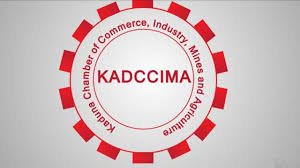Tax reforms: Northern elders, KADCCIMA urge more consultation
The Northern Elders’ Forum (NEF) has again raised concerns over the federal government’s proposed tax reform bills, urging immediate suspension of its implementation and extensive dialogue with stakeholders instead. The forum criticised the government for failing to engage critical stakeholders and experts before drafting the reforms. NEF expressed its position in a statement on Saturday […]

The Northern Elders’ Forum (NEF) has again raised concerns over the federal government’s proposed tax reform bills, urging immediate suspension of its implementation and extensive dialogue with stakeholders instead.
The forum criticised the government for failing to engage critical stakeholders and experts before drafting the reforms.
NEF expressed its position in a statement on Saturday signed by its Chairman of Management Board, Al-Amin Daggash, highlighting the reforms’ potential adverse effects on Northern Nigeria and the nation as a whole.
Daggash said: “Once again, it is necessary to reiterate, that indeed, Nigerians in general and northerners in particular, are not really against the introduction of any form of good and meaningful reforms by those in positions of authority, at the federal, state or local government levels.
“Even though, we shall remain very implacable in reaffirming that, our practical experiences teach us, that, going by global best practices, successful reforms are known to be underpinned by strict adherence to certain common cardinal characteristics of the public policy-making process.
“For convenience of exposition, these similarities include, but, not limited to the underlisted basic essentials: Extensive pre-reforms early engagements with experts and critical stakeholders, in order to secure their buy-in.
“Establishing a very well-defined media/communication strategy, that clearly articulates the full import of the reforms and disseminates public awareness and mass enlightenment on a nationwide scale.
“Designing a robust, transparent and inclusive implementation mechanism. Pro-actively putting in place a well-sequenced process, in order to ensure that the meticulously planned reforms, really meet the society’s desired and anticipated outcomes.
“The Northern Elders’ Forum make bold to say that the recently proposed tax reform bills by the federal government, were clearly in the breach, with regards to adhering to the above listed common characteristics of reforms and public policy-making process, all over the world and in conformity with the global best practices.”
Speaking in same vein in an interview with The Sun at the weekend, the President of Kaduna Chamber of Commerce, Industry, Mines and Agriculture (KADCCIMA), Mr Ishaya Idi, called for the withdrawal of the bills, citing lack of consultation with Nigerians who will be affected by the reforms.
He said going through the bills, “We discovered that certain steps should have been taken before sending it to the National Assembly.
“One of those things would have been to engage Nigerians who the bills are meant to affect.
“There were general outcries on the bills. We earlier told the Presidency to withdraw the bills. We learned the National Assembly has asked that Nigerians should be allowed to discuss the bills.
“So, with that window granted, KADCCIMA is engaging the business community, academic community and stakeholders who may be affected by the bills to see what we can push for our collective survival,” he said.
A council member of KADCCIMA, Joseph Samuel, an engineer, echoed the president’s concerns, stating that the bills have “grey areas” that need to be addressed, particularly with regard to Value Added Tax (VAT) and derivation.
Samuel also expressed concerns about the impact of the reforms on the education sector.
“The tax reform bills as being proposed by Mr President is a laudable attempt to harmonize some old tax laws we have been operating since independence or thereabouts.
“However, there are grey areas in the proposed bills, especially the clauses around VAT and derivation. We also have an issue around the education sector where they are proposing that the education tax, as it is, would stop and go to TETFund.
“Raising VAT from the current 7.5 per cent to 10 per cent and 12.5-15 by 2030 or so without clarifications and proper consultations will mean there will be issues around implementation because when people don’t understand what you are doing, they won’t join you,” he said.
On his part, a political thinker and founding secretary of the Alliance for Democracy (AD), Prof Udenta O. Udenta, said there is need to be a strong conversation on the bills.
“There is need to be a discussion as democracy is conversational and contestation of ideas. If you have a policy as monumental and as deep rooted as the taxpayers that will reform the entire Tax Administration system for the 20 to 50, you need to finetune it to meet a collective acceptance and engage critical stakeholders even if you did some minimal level of conversations.”
He said the stance of northern governors with all the traditional rulers in Kaduna gave the presidency a clue on how to solve the opposition to the bill.
“You have a vice president who’s from the North, it is duty of the president to shepherd that environment and would have sent the vice president to communicate its position but they didn’t do it.”
